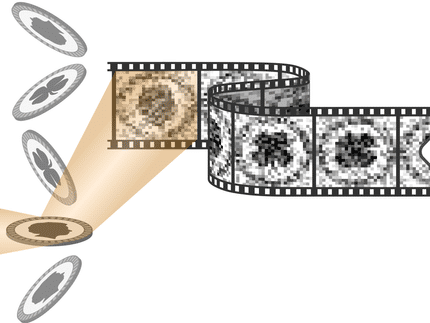The Rising Danger of AI-Generated Images in Nanomaterials Science
Experts Warn
Advertisement
Out now in Nature nanotechnology, Dr. Quinn A. Besford (IPF Dresden) leads a timely and urgent commentary on the rising dangers of artificial intelligence (AI) in nanomaterials science and what can be done to address them.
The piece draws attention to a concerning new reality: Even experienced researchers are increasingly unable to distinguish authentic nanomaterial microscopy images from AI-generated forgeries. This blurring of truth and fabrication raises profound concerns for the integrity of scientific publishing, peer review, and public trust in nanoscience.
Rather than framing AI purely as a threat, the authors emphasize the need for an open and proactive conversation across the nanomaterials community. By acknowledging both the risks and the opportunities, researchers, editors, and institutions can work together to establish new standards, safeguards, and best practices. Only through collective action can the field ensure that AI tools strengthen scientific discovery rather than undermining it.
The commentary, co-led by Dr. Matthew Faria (University of Melbourne) and supported by a group of nanomaterials scientists, journal editors, AI experts, and scientific sleuths, is designed as a strong conversation starter. Its call to action is clear: the nanoscience community must urgently develop strategies to protect the reliability of research in the AI era.
Original publication
Davydiuk, N., Krieg, E., Gaitzsch, J. et al. The rising danger of AI-generated images in nanomaterials science and what we can do about it. Nat. Nanotechnol. (2025)
Most read news
Original publication
Davydiuk, N., Krieg, E., Gaitzsch, J. et al. The rising danger of AI-generated images in nanomaterials science and what we can do about it. Nat. Nanotechnol. (2025)
Topics
Organizations
Other news from the department science

Get the chemical industry in your inbox
By submitting this form you agree that LUMITOS AG will send you the newsletter(s) selected above by email. Your data will not be passed on to third parties. Your data will be stored and processed in accordance with our data protection regulations. LUMITOS may contact you by email for the purpose of advertising or market and opinion surveys. You can revoke your consent at any time without giving reasons to LUMITOS AG, Ernst-Augustin-Str. 2, 12489 Berlin, Germany or by e-mail at revoke@lumitos.com with effect for the future. In addition, each email contains a link to unsubscribe from the corresponding newsletter.































































